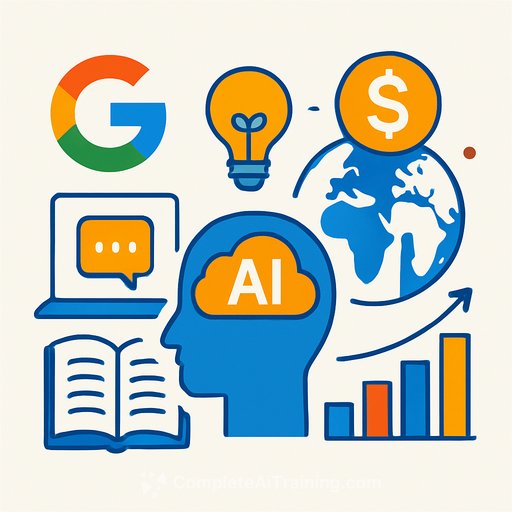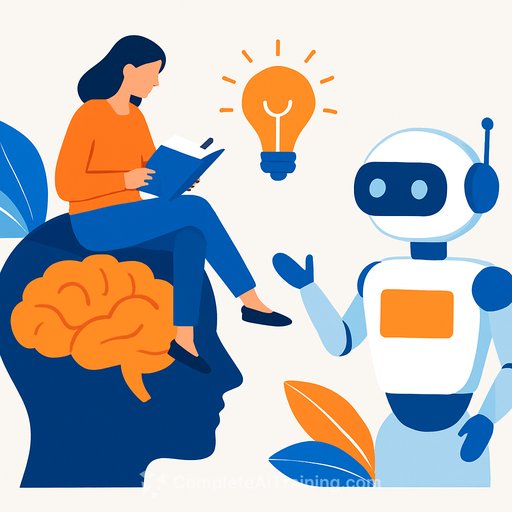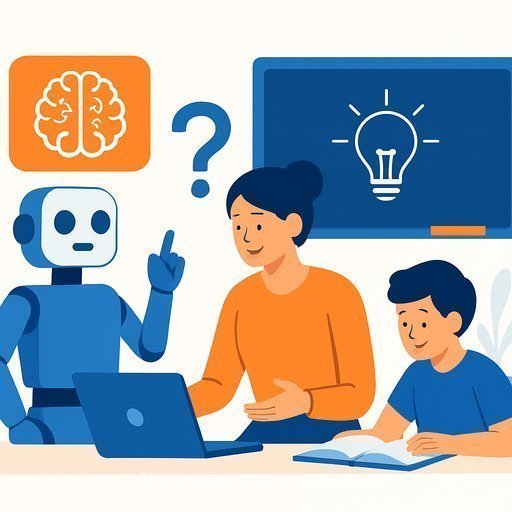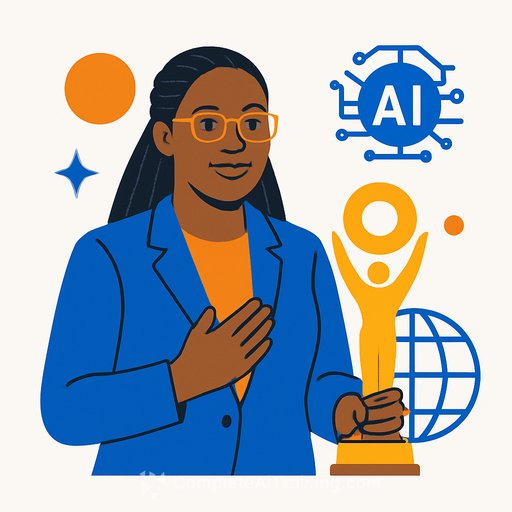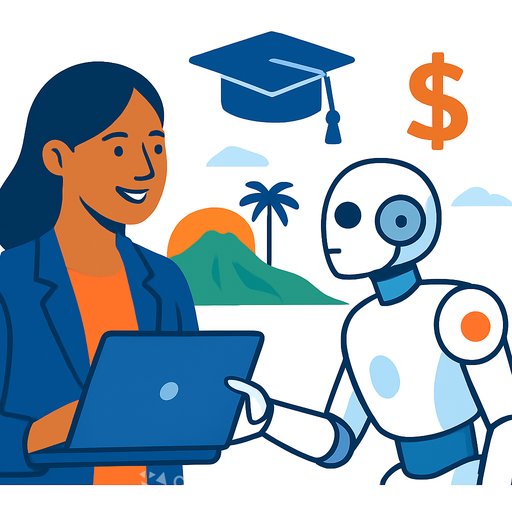Our latest commitments in AI and learning
AI is changing how people learn. It's also forcing us to answer harder questions about quality, equity and what "good" looks like in practice. This week's announcements focus on three things: building useful tools with educators, testing what works through research, and funding the work that expands access.
Building useful products for learners and educators
Schools and universities around the world are bringing Gemini, a leading model for learning, to students, educators and faculty. In Estonia, the national AI Leap initiative - championed by President Alar Karis - will give 20,000+ students and teachers access to AI tools and training, including Gemini for Education. Google and the AI Leap Foundation will jointly study outcomes to understand benefits and risks of AI in classrooms.
YouTube is rolling out a conversational AI tool in the UK to make learning from videos easier. Ask questions while watching, get quick explanations, see summaries of key ideas, and take quizzes to check your understanding.
Running studies to understand impact
There's momentum, but evidence still matters. In a randomized controlled trial with 165 UK students (ages 13-15) run with Eedi, LearnLM - now infused into Gemini 2.5 - was integrated into chat-based math tutoring supervised by experienced teachers. Only 0.1% of all messages contained factual errors, and students tutored by LearnLM were 5.5 percentage points more likely to solve novel problems in their next session. In short: a teacher using AI tools slightly outperformed a teacher who didn't.
More RCTs are planned across the U.S., U.K., India, Sierra Leone and beyond to further validate impact across contexts and subjects.
Funding to expand access and evidence
Google.org is providing $30 million over the next three years to support transformative learning solutions and foundational research. Initial funding includes three efforts: Raspberry Pi Foundation will lead global collaborations on how students learn to code in the age of AI; Fab AI will run international studies on AI's impact on student outcomes; Playlab will build a scalable system to boost AI literacy and equitable access in K-12 through nonprofit partnerships.
Alongside this, Digital Promise released a research-backed framework to help educators use AI and emerging technology in classrooms, informed by more than 50 independent experts across education, technology and research.
What this means for educators
- Start small, learn fast: run a 4-6 week classroom pilot with clear goals (e.g., problem-solving in math, writing feedback, or study skills).
- Keep teachers in the loop: use AI as a co-tutor or drafting partner with teacher oversight and clear review steps.
- Set guardrails: publish classroom norms for acceptable use, citation, data privacy and academic integrity.
- Measure what matters: track pre/post performance, time-on-task, student confidence and error rates; compare AI-supported vs. non-AI groups when possible.
- Prioritize access: ensure students with limited devices or connectivity get equal opportunities to benefit.
- Invest in PD: schedule short, hands-on sessions focused on prompts, feedback workflows and assessment practices.
Quick ideas to try this term
- Math: pilot chat-based tutoring for homework with teacher review of explanations and solution steps.
- Video learning: use YouTube's conversational AI to surface summaries, then have students justify answers with evidence from the video.
- Writing: co-create rubrics with students, then use AI to draft feedback that you refine and approve.
- Study skills: generate spaced practice quizzes and reflection prompts after each lesson.
- Equity: set up a rotating "AI study station" in the library for students who need access outside class.
Looking ahead
Progress will come from cooperation between educators, researchers, and tool builders - paired with steady evidence and thoughtful classroom routines. If you're planning an AI pilot or professional development track, keep it simple, document the process and share results with your community.
Want a curated view of practical AI courses by role? Explore Complete AI Training for programs that help educators apply AI with confidence.
Your membership also unlocks:

